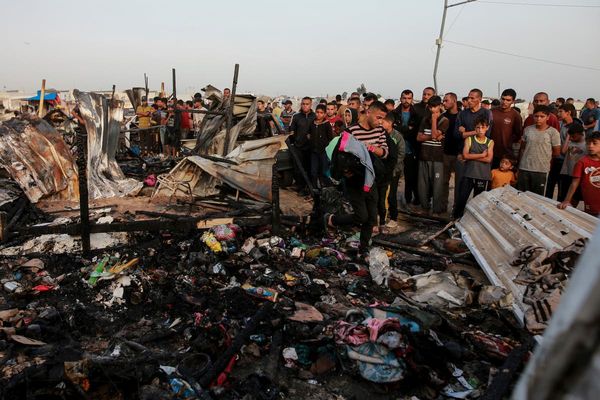
Some 2.5 tonnes of natural uranium stored in a site in Libya that is not under government control have gone missing say UN nuclear watchdog inspectors, raising concerns about nuclear safety.
The chief of the International Atomic Energy Agency (IAEA) Rafael Grossi informed member states in a statement that inspectors had found “10 drums containing approximately 2.5 tonnes of natural uranium in the form of UOC (uranium ore concentrate)” that they had previously known about “were not present” at the location where they had been declared.
"The loss of knowledge about the present location of nuclear material may present a radiological risk, as well as nuclear security concerns," said the statement, seen by the Reuters news agency, which said that the site where the uranium had been stored was not under government control and required “complex logistics” to get to.
Not weapons-grade uranium ... yet
Uranium ore concentrate, known as yellow cake, must be enriched to be used in a weapon or for energy production. However, experts say a tonne of natural uranium can be refined to 5.6 kilograms of weapons-grade material over time.
While the IAEA did not name the site, one possibility is Sabha, an oasis in the Sahara, some 660 kilometers southeast of the capital, Tripoli, where former leader Moamer Kadhafi stored thousands of barrels of yellow cake for a once-planned uranium conversion facility that was never built.
After Kadhafi renounced Libya’s nuclear weapons programme in 2003, inspectors removed the last of the enriched uranium from Libya in 2009. But the yellow cake remained.
Kadhafi was ousted in a NATO-backed uprising in 2011, and since 2014, political control of the country has been split in two, between rival factions in the east and west.
In recent years, Sabha has been under the control of the Libyan National Army, headed by Khalifa Haftar, who has controlled the east of the country, against the UN-backed Tripoli-based government.
The IAEA said it will carry out "further activities" to determine the circumstances of the uranium's removal from the site.
(with wires)







